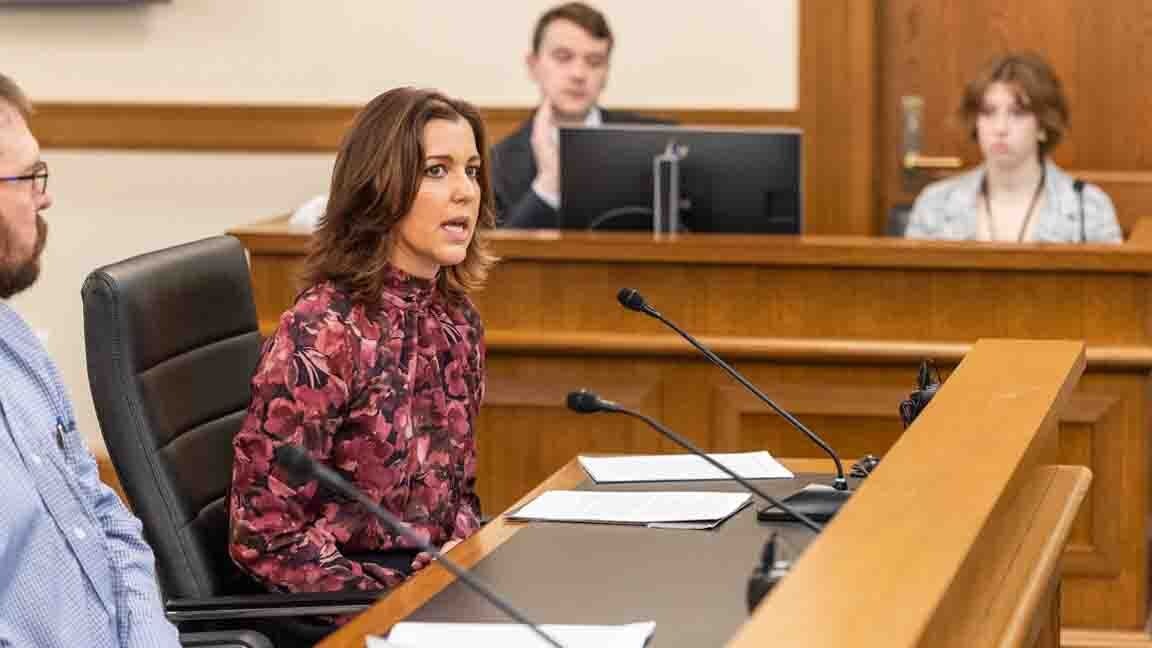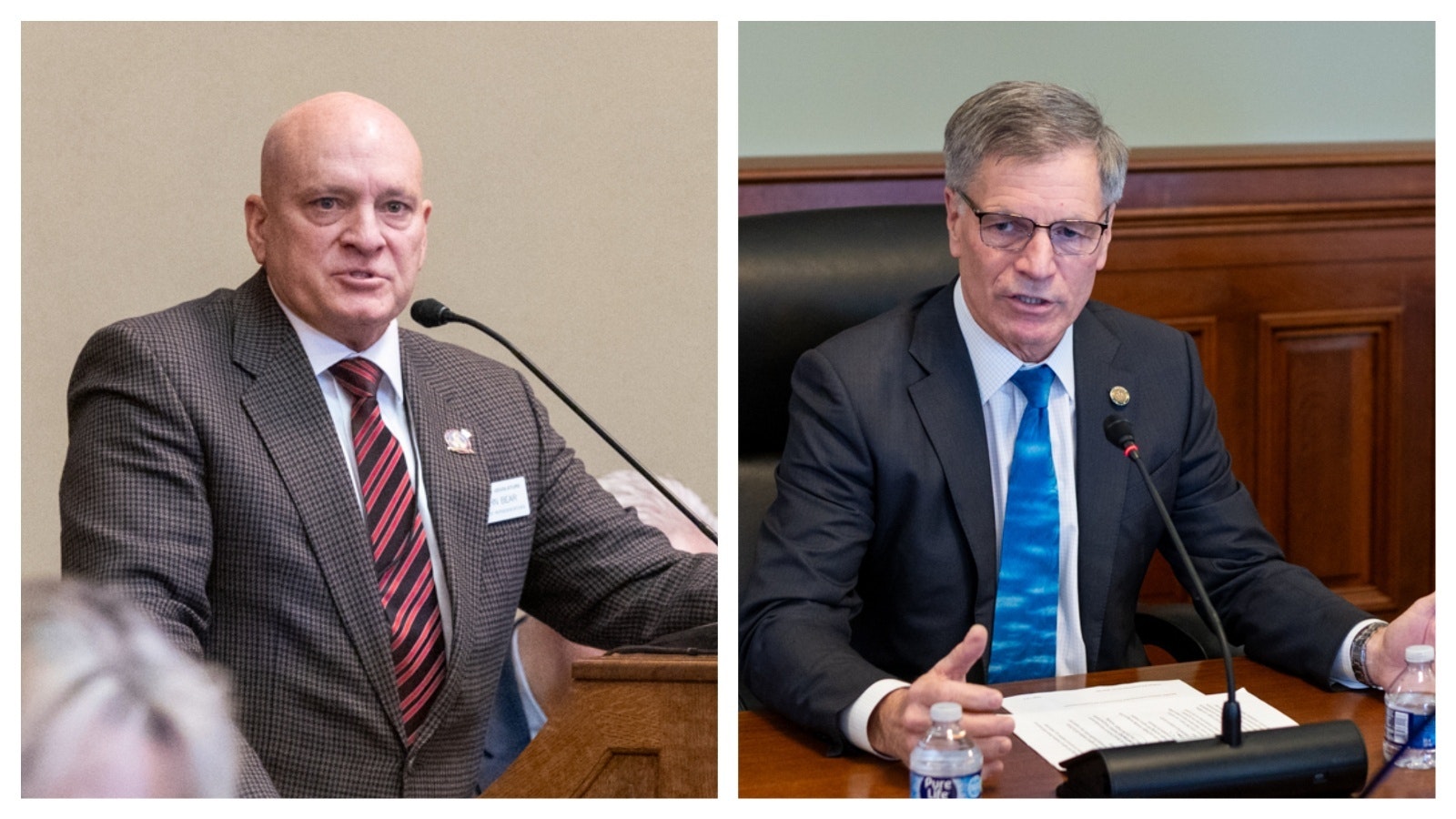A Wyoming legislative bill that would let people sue any publicly-funded business or agency for requiring them to wear a mask, be tested or get vaccinated for COVID-19 sailed through its first committee hearing Monday.
If its most recent version becomes law, House Bill 96 would let people sue any government-funded entity for up to $5,000 for every time that entity required people to wear masks or be tested or vaccinated for COVID-19 to access any service that is “public in nature.”
The bill would impact government entities, plus private businesses that receive any state or federal grants.
The House Labor, Health and Social Services Committee passed the bill Monday to the state House of Representatives floor on a 7-1 vote.
Rep. Mike Yin, D-Jackson, was the lone nay vote. He said he couldn’t support the bill because it will dictate to small local businesses what sort of people they can let through their doors.
“This bill chooses one person’s freedom over another’s,” said Yin. “(For) small businesses, we’re telling them they’re not allowed to choose who their customers are.”
Yin and the rest of the committee heard worried testimony from a spokesman for longterm health care facilities, like senior care homes, that the bill could put them in conflict with federal Centers for Medicare and Medicaid Services (CMS) requirements and gouge away their federal compensation.
The airports of Wyoming also said that millions in Federal Aviation Administration grants supplied by user fees would be out of their reach if they chose to comply with the state law.
The bill’s sponsor, Rep Darin McCann, R-Rock Springs, told the committee the bill is about not discriminating against people for their personal health choices with respect to COVID-19.
The bill prevents people from “being discriminated against,” he said.
Former state Rep. Jeanette Ward, who served Casper as a Republican before losing her August primary election bid to current Rep. Julie Jarvis, also touted the bill as a sponsor of its earlier version.
She told of her daughter being turned away from a community center where she sought a sports physical in 2022 for not wearing a mask, and later of her daughter leaving a college nursing program after being subjected to its COVID-19 testing requirements.
The bill would apply to publicly-supported businesses as well as government agencies because “tyranny by big business is one and the same as tyranny by big government,” she said. “They don’t have free reign to abuse us.”
Another former representative, Republican Sarah Penn of Fort Washakie, urged the bill’s passage. She said her husband, an educator, was faced with the prospect of losing his job due to COVID-19 requirements.
Masking Up In These Airports
Devon Brubaker, director of Southwest Wyoming Regional Airport, opposed the bill on behalf of the Wyoming Airports Coalition.
There are 40 public-use airports in Wyoming that are funded each year with nearly $50 million in user-fee-based grants from the FAA, said Brubaker.
During the COVID-19 pandemic, the FAA required airports to post signage requiring people to wear masks in terminals controlled by the federal government via safety checkpoints, he noted.
“At my airport, I’d trade (keeping) a million-dollar grant for a $5,000 fine any day, because that’s what’s good for my community; that’s what’s good for my airport,” Bruaker said.
It’s not fair to make the community pay the $5,000 civil fine either, he said, and asked the committee to exempt airports from the bill.
Eric Boley of the Wyoming Hospital Association articulated a similar problem with nursing homes and other health care institutions facing penalties from CMS. He floated the idea of having the state pay those fines, but said he’d prefer an exemption for health care facilities instead.
The Attempt
Rep. Ken Clouston, R-Gillette, tried to attach those amendments to the bill. He proposed one that would exempt airports and Wyoming’s long-term care facilities from the fines.
The committee voted that proposed amendment down.
He also proposed an amendment that would make the state pay fines entities incurred under the bill, if they flouted federal law to do so.
That amendment failed as well.
The committee accepted one of Clouston’s other proposed changes, however, to specify that the ban on requiring people to mask would only apply when requiring people to mask for COVID-19.
That would prevent the bill from coming into conflict with industrial sites that require masks for dust and toxins, for example.
Clair McFarland can be reached at clair@cowboystatedaily.com.





